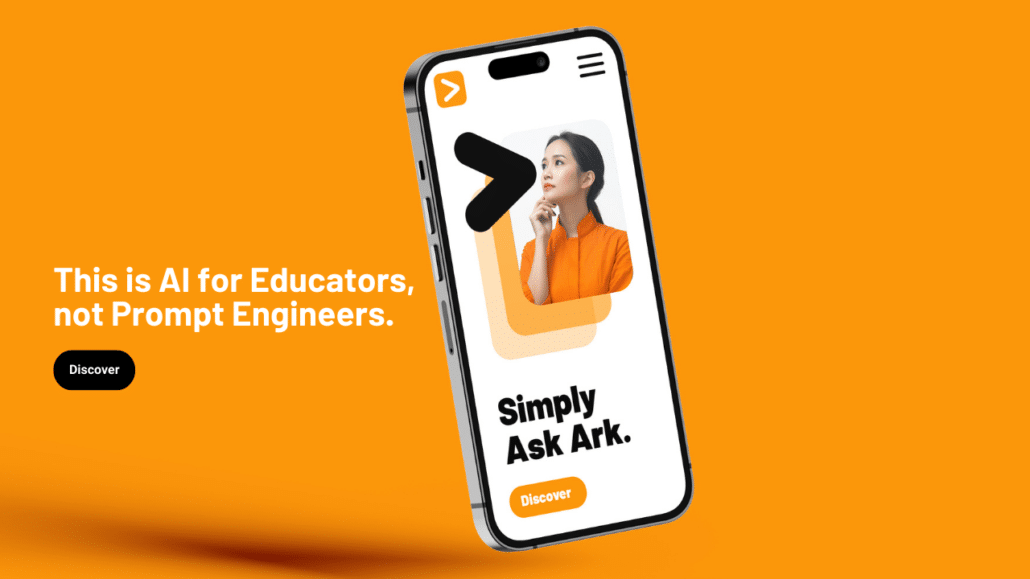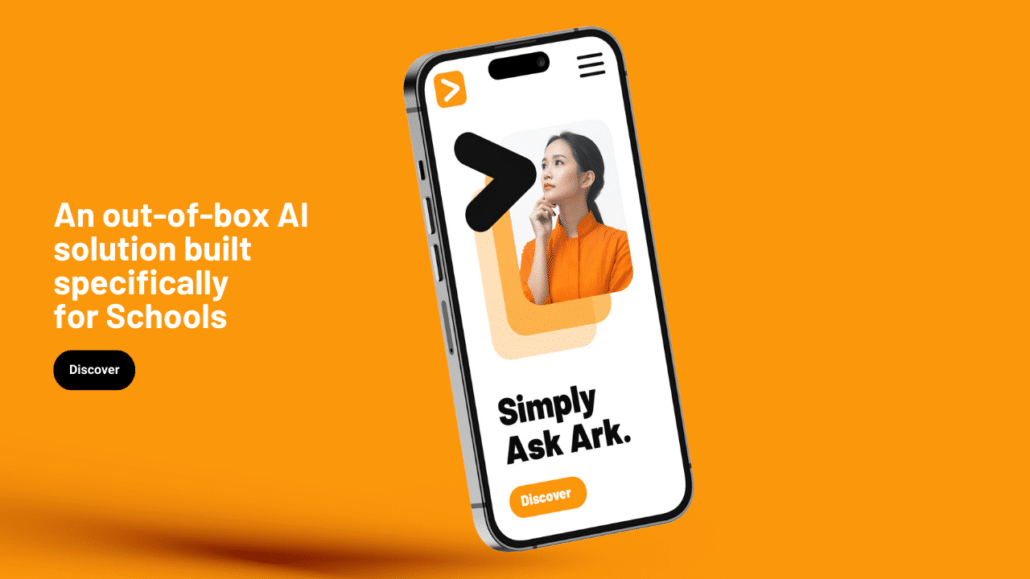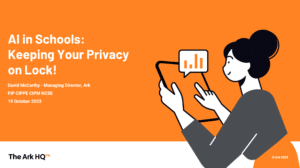AI Privacy Concerns in Schools
Artificial Intelligence (AI) in education will likely be a game-changer for schools (at least at the time of writing, it would seem that way). However, it surely does give rise to many privacy concerns.
In this blog, we’ll delve into the privacy challenges associated with AI in education, the potential consequences of data misuse, and the steps that school leaders, educators, and policymakers can take to protect the privacy of students, staff and their families.
Privacy challenges with AI tools in education
AI-powered tools are naturally data-hungry, requiring vast amounts of information to function effectively. In their quest to optimise the AI’s capabilities, schools and educators may inadvertently provide these models with seemingly unimportant data, which can lead to privacy risks and unintended consequences.
There are several potential privacy concerns when using AIs such as ChatGPT, particularly if it involves processing personal data.
- Unintentional Data Exposure: Feeding AI models with data that seems harmless on the surface may reveal sensitive or personally identifiable information (PII) about students when combined with other datasets. This can lead to privacy violations and expose students to identity theft or discrimination risks.
- Inaccurate or Biased AI Models: Feeding AI models with irrelevant or low-quality data can negatively impact the accuracy and effectiveness of the algorithms. This can result in biased or poorly performing models, which may deliver suboptimal learning experiences and widen existing inequalities in the education system.
- Lack of Data Minimisation: Collecting and using more data than necessary likely goes against the principle of data minimisation, which emphasises the importance of limiting data collection to only what is strictly required. This increases the risk of data breaches and privacy violations as more information is stored and processed than needed.
- Legal and Regulatory Compliance Issues: Feeding AI models with seemingly unimportant data without proper consent or consideration of privacy laws may result in non-compliance with relevant regulations, such as the General Data Protection Regulation (GDPR) or the Family Educational Rights and Privacy Act (FERPA). This can lead to significant legal and financial consequences for schools and educational institutions.
- Loss of Trust: Privacy violations can erode trust in educational institutions, negatively impacting students’ learning experiences and the reputation of schools and educators.

It is important to carefully consider these privacy concerns and take appropriate measures to mitigate them when using AIs in educational settings.
Protecting Privacy in AI-Driven Education: Recommendations for Schools, Educators, and Policymakers
To mitigate the risks associated with uninformed data feeding, schools and educators should adopt the following strategies:
- Develop Data Literacy: Invest in professional development and training programs to enhance educators’ understanding of data privacy, AI algorithms, and the implications of sharing seemingly unimportant data with AI models.
- Implement Data Collection Guidelines: Establish clear guidelines for data collection, specifying the types of data that can be fed into AI models and ensuring that only relevant and necessary information is used.
- Data Privacy Impact Assessments: Conduct regular data privacy impact assessments to evaluate the potential risks associated with data collection and feeding practices in AI-driven education. This will help identify potential privacy risks and inform appropriate mitigation strategies.
- Promote a Culture of Privacy Awareness: Encourage a culture of privacy awareness within the school community, emphasising the importance of safeguarding students’ personal information and fostering a sense of responsibility and accountability among educators.
Further measures
To safeguard the privacy of students and their families, school leaders, educators, and policymakers must implement a multi-faceted approach:
- Establish Clear Data Privacy Policies: Develop comprehensive data privacy policies that outline how personal information will be collected, stored, and used. Ensure that these policies are transparent and accessible to students and their families. Clearly set out the circumstances in which AI will be used and if or when personal data will be used with these tools.
- Read privacy policies: Always read the privacy policies of any AI-powered tools or websites you use to understand how your (or your student’s) data is being collected, stored, and used.
- Avoid sharing personal information: Educators should avoid sharing any personal information such as full name, phone number, or email address engineering prompts when using AI-powered tools.
- Obtain Informed Consent: Seek consent from students and their families before collecting personal information for use with AI technology. Consent should be informed, i.e. based on a clear explanation of the purpose and benefits of data collection when used in AI tools.
- Regularly assess AI Algorithms: Conduct periodic audits of AI algorithms to identify and address potential biases and ensure that students are treated fairly, regardless of their background or personal characteristics.
- Educate Stakeholders on Privacy Issues: Educate students, families, educators, and policymakers on the importance of privacy in the age of AI-driven education and the potential consequences of data misuse.
Training on AI
To help school leaders navigate the complex landscape of AI-driven education while ensuring student privacy, our Education AI™ training course provides comprehensive training on best practices, ethical considerations, and practical implementation strategies.
Don’t let privacy concerns hold your school back from leveraging the transformative potential of AI in education. Enroll your staff in our Education AI™today and take the first step towards creating a safe and responsible AI-driven learning environment for your students.

Conclusion
While AI-driven education offers numerous benefits, privacy concerns associated with this technology are a real concern. Each school must adopt appropriate technical and security measures to safeguard personal data by implementing robust data privacy policies, addressing algorithmic biases, and prioritising transparency and informed consent.
By doing so, School Leaders, educators, and policymakers can ensure that the potential of AI in education is harnessed without compromising the privacy rights of students and their families.













